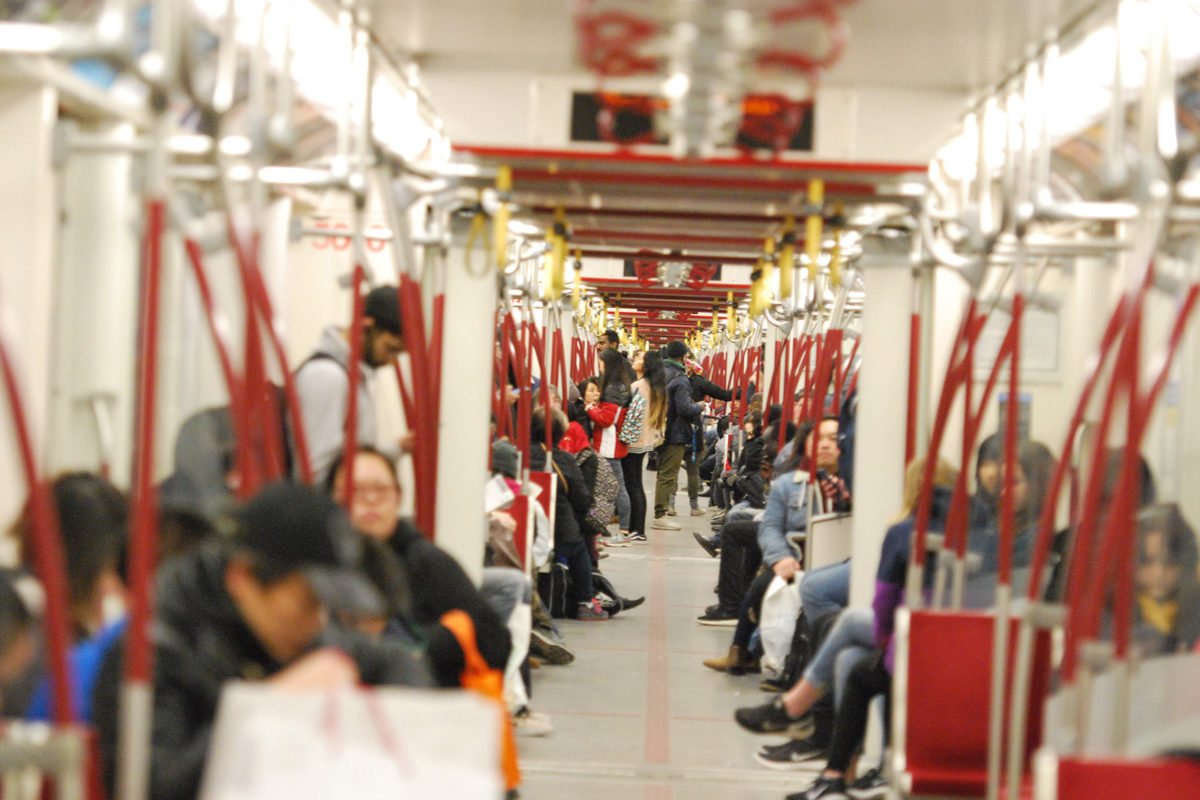Commuting is one of the key parts of an employee’s workday. Deciding how they get to and from work, and how much time this will take, is on every employee’s mind. As COVID-19 has changed the way we live and work, the question about commuting has become even more prevalent. Indeed the blogTO headline of “total chaos at Eglington Station ” reflects a worse case scenario, making commuting a top of mind issue.
For those required to be physically at work, some have their own vehicle or are close enough to work that they do not need to use public transportation. However, many others are not so lucky, and exclusively depend on public transportation to commute. Getting on public transit increases the risk of contracting and spreading COVID-19, because of the exposure to others, due to the difficulties of social distancing on a bus or a train. A common question at this time from employees is whether the Employer can force them to commute using public transit, and if the Employer does attempt to do so, could this be a human rights violation?
Determining liability
Employers can require their employees return to work in order to keep the business going. However, requiring an employee to commute to work could expose employers to a human rights claim. If an employee objects, employers would be wise to take the context surrounding the workplace and the factors affecting the employee into consideration. For example, is the employee part of an at-risk group for COVID-19? If the employee is elderly, has a medical condition, or has been directed to stay at home to self-quarantine, the employee may need to be accommodated. Part of the employer’s requirement to accommodate could be how they address the commute of the employee.
In a recent labour arbitration case between the Toronto District School Board and its Union, the TDSB took the position that they were not obligated to accommodate the employee’s commuting time. In this case, the TDSB was not found to have discriminated against the employee but the Arbitrator did give serious thought to the adverse impact on an employee if the employee’s requested adjustments to their commute are not accommodated.
Because the current pandemic situation is unprecedented, any decision that is made by our courts or tribunals will set the tone for future decisions. Is it sufficient for the employer to state that public transportation has taken social distancing seriously, and implemented safety measures? Is the length of the commute a factor to be considered? Is there a difference between subway or bus transportation? An argument could successfully be made either way, so context matters.
Accommodating employee commutes
Accommodation is an individualized exercise that must be examined in context. The nature of the work in question and the work environment are essential contextual factors, as is factoring in the individual employee’s situation.
There can be several options available to the employer and the employee to accommodate the commute. If the employer can stagger their usual work schedules and have the Employee go to work at times when commuting traffic is low, this could be one form of accommodation while requiring the employee to commute since the exposure risk is then lower. Other more costly forms of accommodation include the Employer subsidizing taxi or car rental costs. The Employee is still required to commute and physically come to work, but they are no longer exposed to the higher-risk commute on public transportation.
The Ontario Government continues to make strides to make public transportation safe for those who need to take it. In a recent news release, the Ontario Government announced measures to keep employees safe as more and more businesses are opening up. Employers can look to these safety measures if accommodation is requested and judge what additional accommodations might be needed, given the particular circumstances of the employee.
Toronto and the TTC, following the likes of the municipalities of Mississauga, Brampton, and Ottawa, are implementing mandatory facemasks on public transportation. Where mandatory measures such as these are implemented and enforced, the contextual factors relevant to an Employee’s accommodation for their commute will be affected. The safety measures on public transit change the calculus, and some employees will not incur the same risk even if they do need to commute to work via train, subway, or bus.
Accommodation is dependent on the circumstances of the employee requiring accommodation and circumstances of the employer and the workplace. Some employees are at higher risk concerning COVID-19, and may require more accommodation than others.
If you have questions about how to navigate the changing employment laws during COVID-19, Hum Law can advise how to manage your employee contracts while protecting both employers and employees. Contact us today. To reach us by phone call (416)214-2329.


